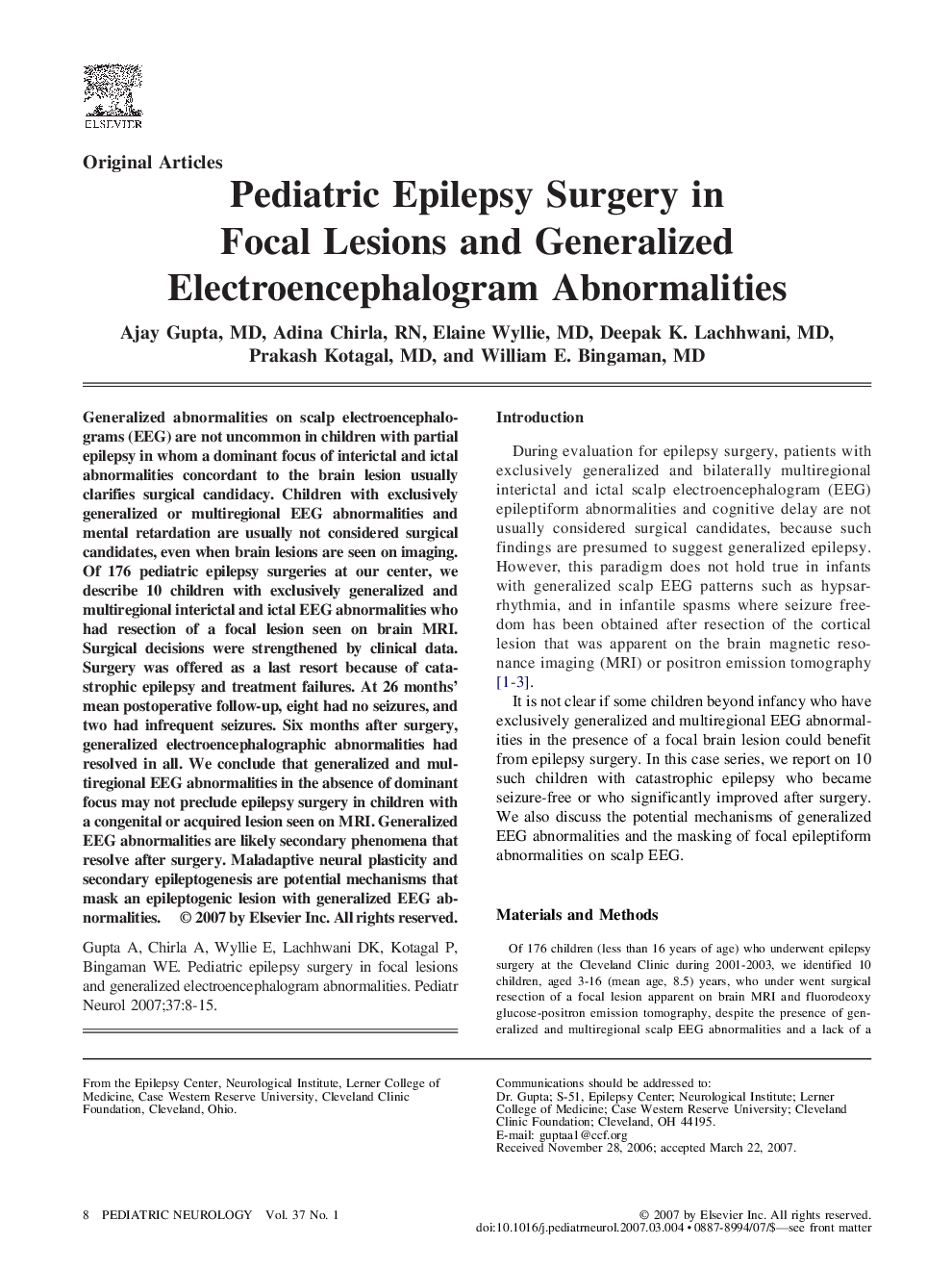| Article ID | Journal | Published Year | Pages | File Type |
|---|---|---|---|---|
| 3086914 | Pediatric Neurology | 2007 | 8 Pages |
Generalized abnormalities on scalp electroencephalograms (EEG) are not uncommon in children with partial epilepsy in whom a dominant focus of interictal and ictal abnormalities concordant to the brain lesion usually clarifies surgical candidacy. Children with exclusively generalized or multiregional EEG abnormalities and mental retardation are usually not considered surgical candidates, even when brain lesions are seen on imaging. Of 176 pediatric epilepsy surgeries at our center, we describe 10 children with exclusively generalized and multiregional interictal and ictal EEG abnormalities who had resection of a focal lesion seen on brain MRI. Surgical decisions were strengthened by clinical data. Surgery was offered as a last resort because of catastrophic epilepsy and treatment failures. At 26 months’ mean postoperative follow-up, eight had no seizures, and two had infrequent seizures. Six months after surgery, generalized electroencephalographic abnormalities had resolved in all. We conclude that generalized and multiregional EEG abnormalities in the absence of dominant focus may not preclude epilepsy surgery in children with a congenital or acquired lesion seen on MRI. Generalized EEG abnormalities are likely secondary phenomena that resolve after surgery. Maladaptive neural plasticity and secondary epileptogenesis are potential mechanisms that mask an epileptogenic lesion with generalized EEG abnormalities.
